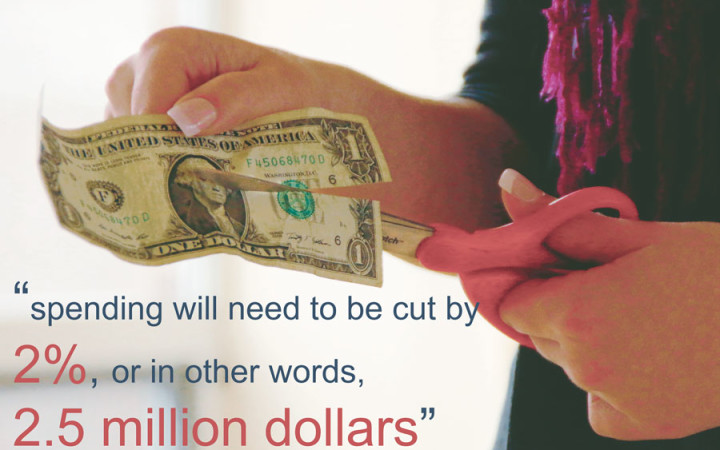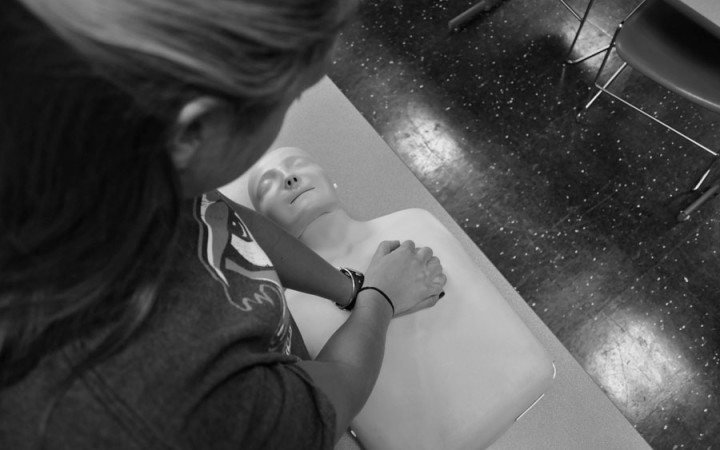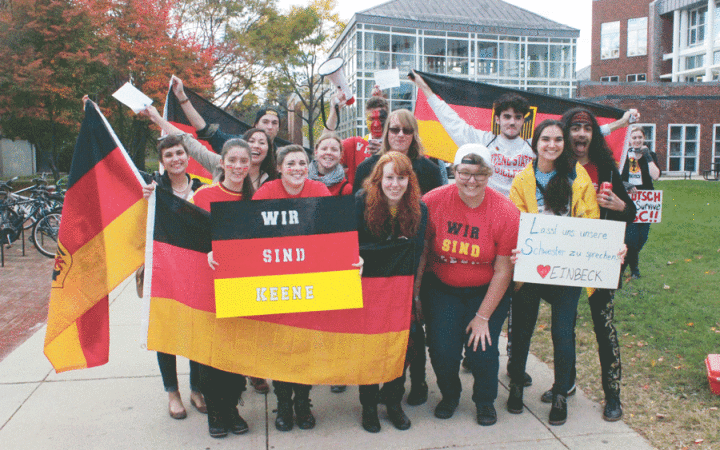In October of this year, Vice President of Finance and Planning Jay Kahn sent an email out to KSC faculty and professors. In it Kahn stated that factors such as lowered enrollment and fewer sales in the campus bookstore have led to the resolution that spending will need to be cut by two percent. Or, in other words, 2.5 million dollars.
Dean of Arts and Humanities Andy Harris said this spending reduction for the whole college is more than the two percent primarily mentioned by Kahn.
“That [spending reduction] is in the amount of about two percent of our college operating budget, but it’s bigger than two percent in practical terms because a lot of the costs can’t be cut…there are many things you can’t cut any percentage of- full time faculty and staff-and so we’re left with a higher percentage of everything that’s left,” Harris said.
Harris sent an email to his department faculty and staff. He said that, while the issue is school-wide, the situation is worse for arts and humanities.
“We want to run the classes that we need for the students that we have, but we have a lot less students [so] we cannot run as many classes and that’s been the primary way we’ve met this challenge up till now,” he said.
In person Kahn reiterated this, saying that, “while this might affect faculty, what the budget cut is really about is looking at which classes are being filled and which ones aren’t which will lead to some being cut.”
“It’s clear some of our basic entry level classes, we don’t need as many, so that rightsizing has been taking place since last May,” Kahn said.
Kahn continued and said that it really depends on the evaluation of the dean in each department.
He said, “[They] make sure we have the right number of courses for the number of students we have enrolled, not the number we have projected twelve months ago, which would leave us with more courses than we would need.”
Kahn also said there are other elements to where money is spent as well.
“It depends, does the equipment break down, are there new faculty that come on board that require additional support items, [are there] conference expenses for professional development? These expenses vary from year to year,” he said.
Kahn continued, “In this year when we can see that there are fewer incoming students, that is having an impact on revenue…so it’s not like anybody has made budget cuts, it’s a team effort, college-wide effort to look and see where savings can occur and to identity that early, not wait till the end of the year.”
He did say, however, that this cut in budget will have no affect on student tuition. “[There have been] no changes in any of the charges the college has been authorized,” Kahn said.
However there will be increases in the fees. Interim Associate Vice President for Finance and Planning Martha Landry, who will be taking over for Kahn for the time being after he retires, said there will between a two and five percent increase in the fees presented to students. “This includes the meal-plan, athletic complex, art facilities, health resources, everything but Res-life,” Landry said.
KSC junior Jordan Lawrence said she’s always aware of costs being raised. “I pay for everything on my own so if tuition or books were to be raised, it would be tough, not just on me, but on a lot of my peers,” she said.
Lawrence said a way we could help encourage enrollment would be to coordinate with the community outside campus and do something together. She said it’s ridiculous how much we’ve been judged for the Pumpkinfest riots that occurred last year. “Yeah it was crazy, [but] it was one year…I mean we’re not bad kids,” Lawrence said.
KSC junior Melissa Fraser said she finds it sad how bad a mark pumpkinfest left on the school’s reputation. “And not just when it happened, but in the long term we’re still paying for it, which is unfair,” she said.
She said she thinks that’s a primary reason why enrollment’s lower since some potential student’s parents might fear sending their kids here. Fraser said, “I mean it was…one day and I feel like it doesn’t reflect the whole school but I feel like that’s all parents think about when they send their kids here and they’re afraid that’s going to happen again and their kids going to get hurt coming here.”
Junior Joe Sansone said he finds it strange that we’re constructing new buildings when enrollment is down. “Maybe put it more towards teaching the kids who are already here,” he said. Sansone said we should be aware of where our money is going and that we should, “Spend our money more wisely.”
Harris said the long term goal of having more buildings is effective for the college. “Before this year we had a lot of students forced to live in triples; that is not a healthy way to live a college experience,” Harris said.
Some groups have taken matters into their own hands.
In an article published last week concerning the campus group Wir Sind Keene State and their bake sale which raised $125.10 to donate for Syrian refugees, KSC Junior Emma Cote said the group also is doing this to get publicity out for the German Minor, to show what the minor does for the school.
“Everyone’s like it’s a financial issue [or that] we don’t have money for it but at the same time we can come up with some of our own funds [and] we can do great things for the school,”Cote said.
KSC first-year student Julia Hannan said efforts to raise money for the school should be thought out.
“Like more art shows or things like that,” Hannan said.
Vice President Kahn said that the student exhibitions and performances to bring in revenue is a great idea.
“We have presentations each semester and judging from the quality of our students’ work, I would think that has revenue potential,” Kahn said.
He continued, “The college’s strategic plan identifies revenue diversification as an important college wide issue.
Kahn also said he is currently speaking with the student assembly to figure out financial planning for the following year. “And these aren’t necessarily decreases,” Kahn said.
Dorothy can be contacted at denglad@kscequinox.com





